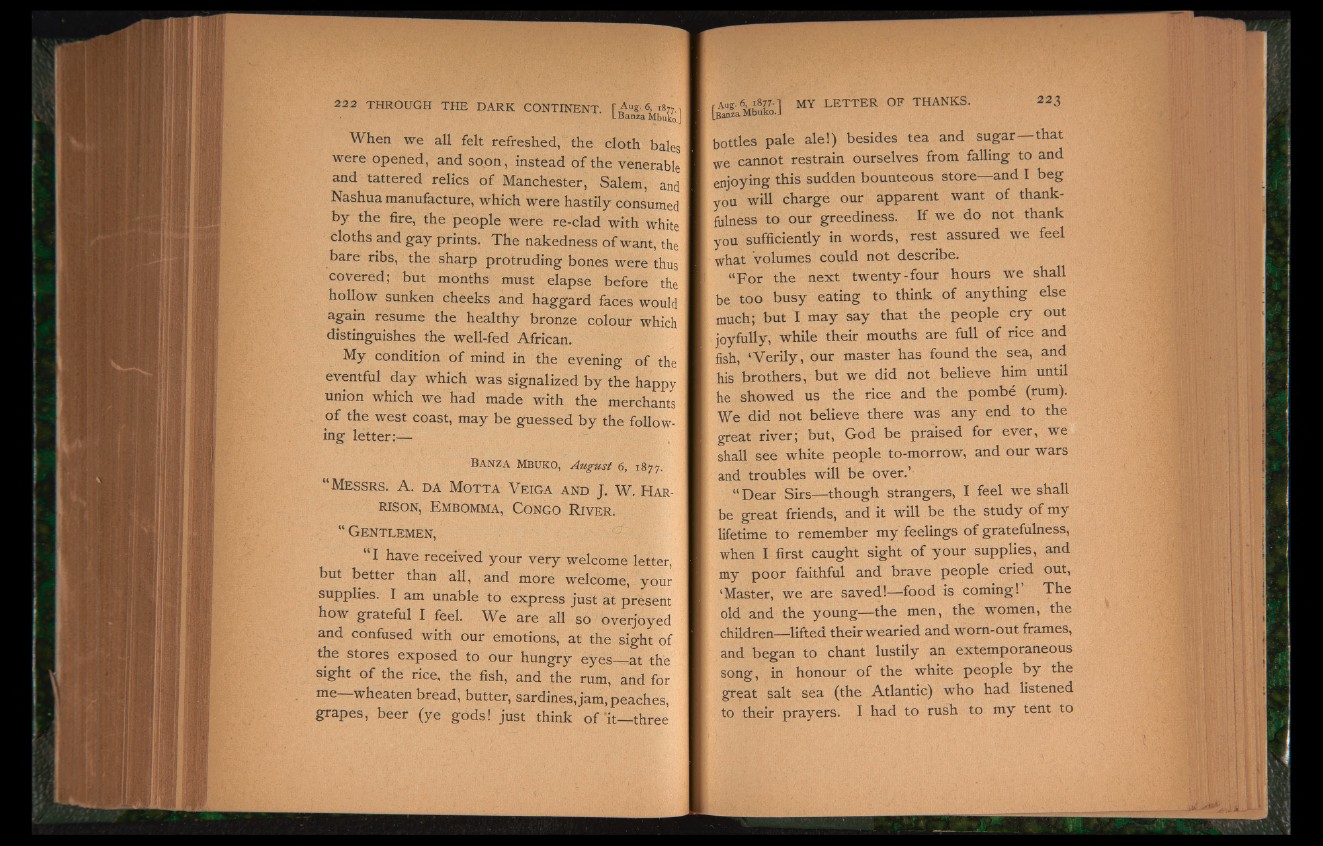
When we all felt refreshed, the cloth bales
were opened, and soon, instead of the venerable
and tattered relics of Manchester, Salem, and
Nashua manufacture, which were hastily consumed
by the fire, the people were re-clad with white
cloths and gay prints. The nakedness of want, the
bare ribs, the sharp protruding bones were thus
covered; but months must elapse before the
hollow sunken cheeks and haggard faces would
again resume the healthy bronze colour which
distinguishes the well-fed African.
My condition of mind in the evening of the
eventful day which was signalized by the happy
union which we had made with the merchants
of the west coast, may be guessed by the following
letter:—
Banza MBUKO, August 6, 1877.
“ Me s s r s . A . d a Mo t t a V e ig a a n d J. W . H ar r
iso n , E mbomma, C o n go R iv e r .
“ G e n t l em e n ,
“ I have received your very welcome letter,
but better than all, and more welcome, your
supplies. I am unable to express just at present
how grateful I feel. We are all so overjoyed
and confused with our emotions, at the sight of
the stores exposed to our hungry eyes at the
sight of the rice, the fish, and the rum, and for
me— wheaten bread, butter, sardines, jam, peaches,
grapes, beer (ye gods! just think of *it—three
bottles pale ale!) besides tea and sugar— that
we cannot restrain ourselves from falling to and
e n j o y i n g this sudden bounteous store— and I beg
you will charge our apparent want of thankfulness
to our greediness. If we do not thank
you sufficiently in words, rest assured we feel
what volumes could not describe.
“For the next twenty-four hours we shall
be too busy eating to think of anything else
much; but I may say that the people cry out
joyfully, while their mouths are full of rice and
fish, ‘Verily, our master has found the sea, and
bis brothers, but we did not believe him until
he showed us the rice and the pombe (rum).
We did not believe there was any end to the
great river; but, God be praised for ever, we
shall see white people to-morrow, and our wars
and troubles will be over.’
“Dear Sirs— though strangers, I feel we shall
be great friends, and it will be the study of my
lifetime to remember my feelings of gratefulness,
when I first caught sight of your supplies, and
my poor faithful and brave people cried out,
‘Master, we are saved!— food is coming! The
old and the young— the men, the women, the
children—lifted their wearied and worn-out frames,
and began to chant lustily an extemporaneous
song, in honour of the white people by the
great salt sea (the Atlantic) who had listened
to their prayers. I had to rush to my tent to